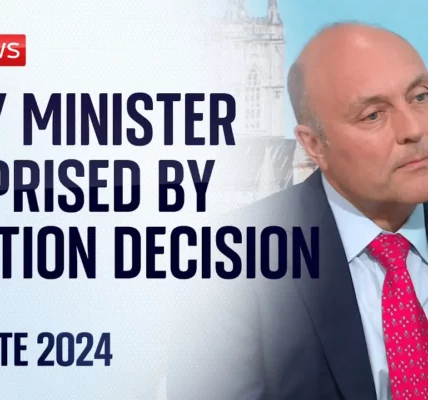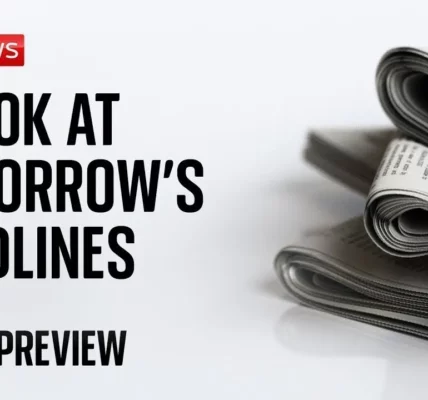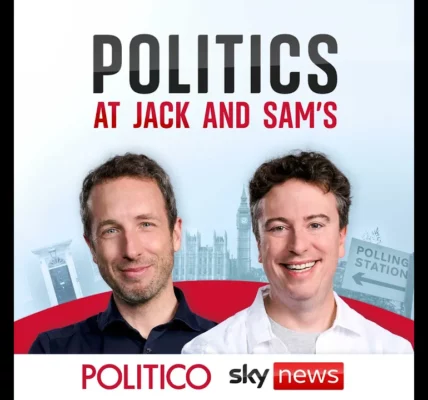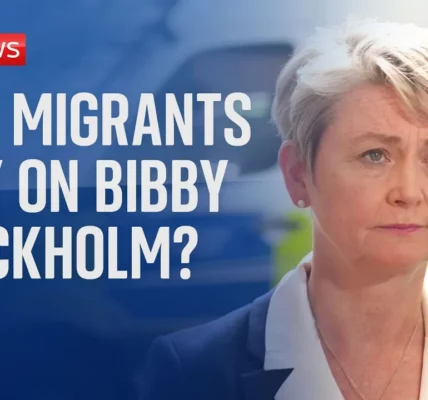Political Commentary: Farage’s Controversial Remarks and Election Insights

Explore an in-depth analysis of the current political landscape in the UK, focusing on recent comments by Nigel Farage regarding Ukraine, the implications of wealth taxation, and the evolving dynamics as the election approaches.
Introduction
The political climate in the UK is increasingly tumultuous as various parties gear up for the upcoming elections. Recent comments by Nigel Farage have sparked significant debate over the West’s role in the Ukraine crisis. Coupled with discussions surrounding wealth taxation and the fate of the Conservative and Labour parties, the stage is set for a heated electoral battle. This article delves into these pressing issues, providing a comprehensive overview of the current affairs shaping UK politics.
Nigel Farage’s Controversial Statements
Nigel Farage, a prominent political figure in the UK, recently stated in an interview with the BBC that the West provoked Russia’s invasion of Ukraine. This assertion has raised eyebrows and ignited discussions on several fronts.
Reactions to Farage’s Claims
Farage’s comments suggest a shift in narrative, as he appeared to align himself with a perspective that attributes blame to NATO and Western actions for the current conflict. This stance has been met with criticism from various political commentators and members of the public, who argue that such views undermine the complexities of international relations.
Implications for the Reform Party
The Reform Party, led by Farage, faces challenges as it attempts to attract disillusioned Tory voters. Comments like those made by Farage could alienate potential supporters who view such opinions as extreme. The party’s internal structure, being akin to a private business without democratic processes, complicates matters further. Voters might question the party’s stability and leadership.
- Potential loss of support among moderates.
- Increased scrutiny on party policies and leadership.
- Challenges in establishing a clear electoral identity.
The Impact of Taxation on Wealthy Individuals
The conversation around taxation, particularly regarding the wealthy, has intensified. Reports indicate that many high-net-worth individuals are contemplating leaving the UK due to proposed changes in tax policy.
Non-Dom Regime Changes
The planned abolition of the non-domicile tax status has led to concerns among wealthy expatriates. Many believe this will drive them to relocate to countries with more favorable tax regimes.
- Non-doms contribute significantly to the UK economy.
- Tax hikes could lead to a mass exodus of wealthy individuals.
- Countries like the UAE are becoming attractive alternatives.
Labour vs. Conservative Tax Policies
Both major parties are competing to outline their tax policies amidst growing discontent among voters. The Labour Party positions itself as the party of wealth creation, while the Conservatives face criticism for their handling of wealth taxation.
The political discourse has evolved, with each party attempting to appeal to the broader electorate while managing the expectations of affluent constituents.
Future of UK Politics and Upcoming Elections
With the elections on the horizon, the UK political landscape is rife with speculation and strategic maneuvering. Key players are vying for control, making promises and adjustments to their platforms.
Predictions and Expectations
As campaigns ramp up, analysts predict that the electorate will focus heavily on economic stability, international relations, and party integrity. The fallout of Farage’s comments and the responses from Labour and Conservative parties will play a crucial role in shaping public opinion.
Public Sentiment and Voter Dynamics
Public sentiment is shifting, with many voters expressing frustration over the current political discourse. The success of Reform and Labour largely hinges on their ability to connect with voters disenchanted by traditional party politics.
- Voter turnout is expected to be influenced by economic concerns.
- Public trust in party leadership will be critical.
- Social media will play a significant role in shaping narratives.
Conclusion
The current political climate in the UK is a reflection of deep-seated issues that require careful navigation. Nigel Farage’s recent comments and the ongoing discussions about taxation will undoubtedly influence the upcoming elections. As voters prepare to make crucial decisions, parties must adapt their strategies to address the concerns of the electorate effectively. Now is the time for informed debate and responsible leadership as the nation heads towards a pivotal moment in its political history.
For more insights and detailed analyses, check out our related articles on UK politics and electoral strategies.
“`




